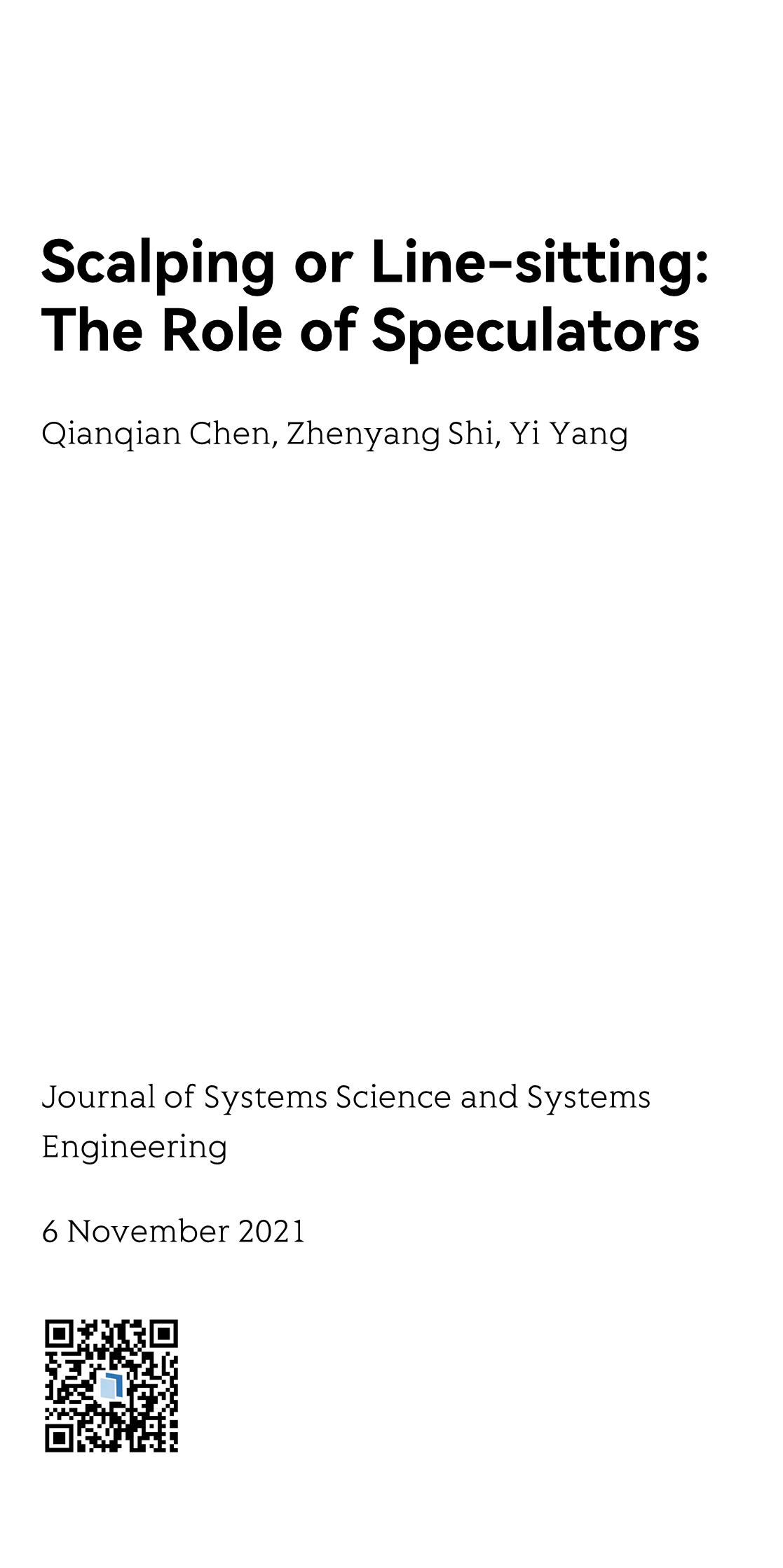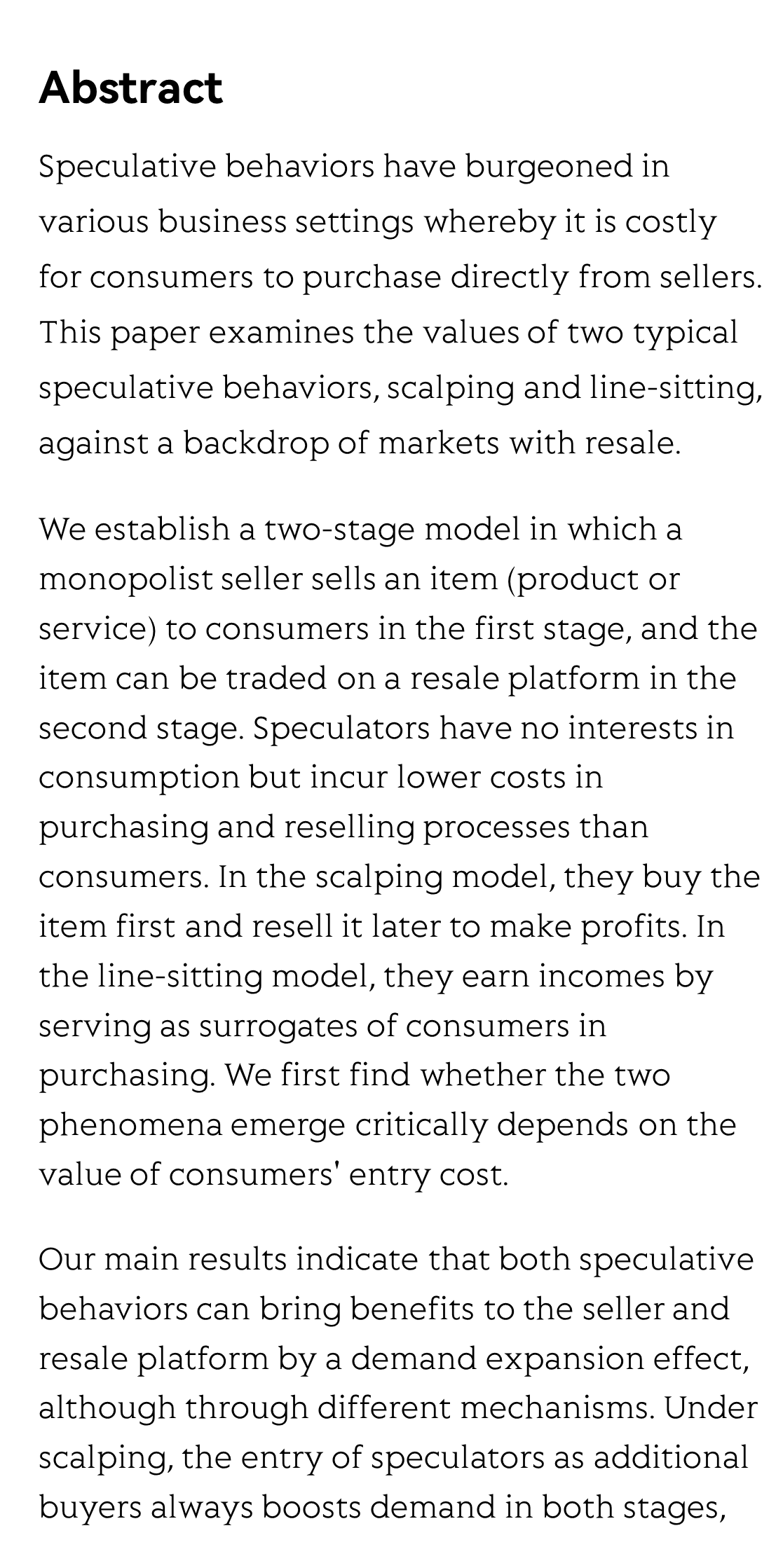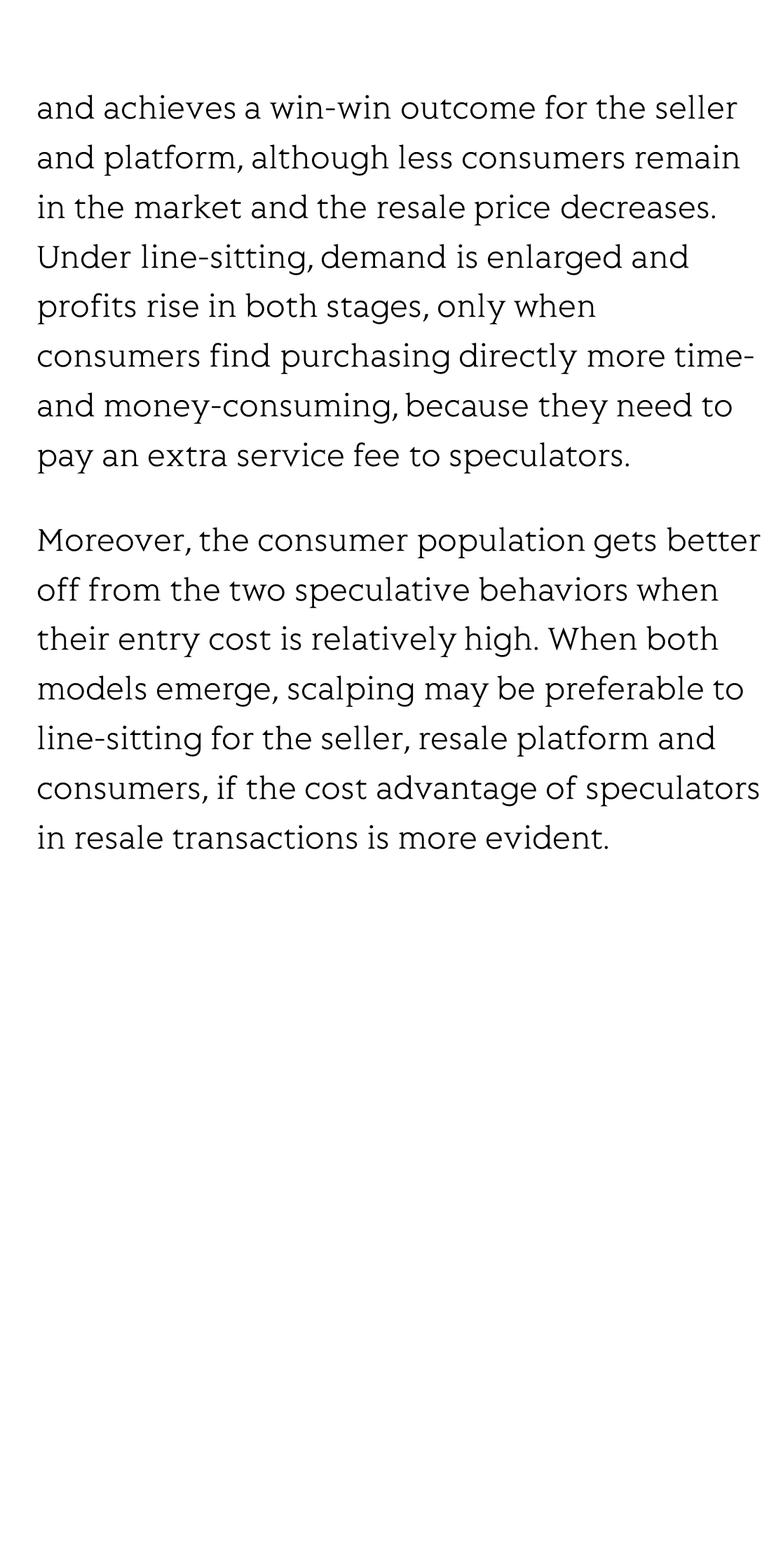(Peer-Reviewed) Scalping or Line-sitting: The Role of Speculators
Qianqian Chen 陈倩倩, Zhenyang Shi 石臻杨, Yi Yang 杨翼
School of Management, Zhejiang University, Hangzhou, 310058, China
中国 杭州 浙江大学管理学院
Abstract
Speculative behaviors have burgeoned in various business settings whereby it is costly for consumers to purchase directly from sellers. This paper examines the values of two typical speculative behaviors, scalping and line-sitting, against a backdrop of markets with resale.
We establish a two-stage model in which a monopolist seller sells an item (product or service) to consumers in the first stage, and the item can be traded on a resale platform in the second stage. Speculators have no interests in consumption but incur lower costs in purchasing and reselling processes than consumers. In the scalping model, they buy the item first and resell it later to make profits. In the line-sitting model, they earn incomes by serving as surrogates of consumers in purchasing. We first find whether the two phenomena emerge critically depends on the value of consumers' entry cost.
Our main results indicate that both speculative behaviors can bring benefits to the seller and resale platform by a demand expansion effect, although through different mechanisms. Under scalping, the entry of speculators as additional buyers always boosts demand in both stages, and achieves a win-win outcome for the seller and platform, although less consumers remain in the market and the resale price decreases. Under line-sitting, demand is enlarged and profits rise in both stages, only when consumers find purchasing directly more time- and money-consuming, because they need to pay an extra service fee to speculators.
Moreover, the consumer population gets better off from the two speculative behaviors when their entry cost is relatively high. When both models emerge, scalping may be preferable to line-sitting for the seller, resale platform and consumers, if the cost advantage of speculators in resale transactions is more evident.
Flicker minimization in power-saving displays enabled by measurement of difference in flexoelectric coefficients and displacement-current in positive dielectric anisotropy liquid crystals
Junho Jung, HaYoung Jung, GyuRi Choi, HanByeol Park, Sun-Mi Park, Ki-Sun Kwon, Heui-Seok Jin, Dong-Jin Lee, Hoon Jeong, JeongKi Park, Byeong Koo Kim, Seung Hee Lee, MinSu Kim
Opto-Electronic Advances
2025-09-25
Dual-frequency angular-multiplexed fringe projection profilometry with deep learning: breaking hardware limits for ultra-high-speed 3D imaging
Wenwu Chen, Yifan Liu, Shijie Feng, Wei Yin, Jiaming Qian, Yixuan Li, Hang Zhang, Maciej Trusiak, Malgorzata Kujawinska, Qian Chen, Chao Zuo
Opto-Electronic Advances
2025-09-25





